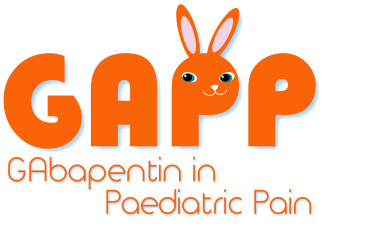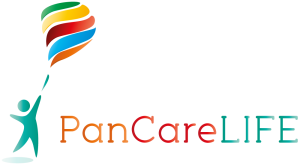Horizon 2000
Horizon 2020 is the biggest EU Research and Innovation programme ever with nearly €80 billion of funding available over 7 years (2014 to 2020) – in addition to the private investment that this money will attract. It promises more breakthroughs, discoveries and world-firsts by taking great ideas from the lab to the market. By coupling research and innovation, Horizon 2020 is helping to achieve this with its emphasis on excellent science, industrial leadership and tackling societal challenges. The goal is to ensure Europe produces world-class science, removes barriers to innovation and makes it easier for the public and private sectors to work together in delivering innovation. [4]
EDEN2020
The acronym of the EDEN2020 is "Enhanced Delivery Ecosystem for Neurosurgery". The 2020 stands for year 2020 since this EU project has it's deadline until March 31, 2020. The goal of this project is to create a neurosurgical robotic-assisted technology platform for minimally invasive surgical delivery for therapy and in situ diagnostics and progress monitoring (also called one-stop diagnosis). EDEN2020 focuses on the integration of 5 key technologies, namely pre-operative MRI and diffusion-MRI imaging, intra-operative ultrasounds, robotic assisted catheter steering, brain diffusion modelling, and (5) a robotics assisted neurosurgical robotic product (the Neuromate). This fellowship is supposed to increase the efficacy of the drug delivery for cancer treatment. The groups working on this project are doing experiments on sheeps (ex-vivo and in-vivo). [1], [2] Experts in intra-operative imaging from Technical University of Munich and shape sensing from Universitair Medisch Centrum Groningen are also part of this project. EDEN2020 aspires to provide a step change in the modelling, planning and delivery of diagnostic sensors and therapies to the brain via flexible surgical access, with an initial focus on cancer therapy. It will engineer a family of steerable catheters for chronic disease management that can be robotically deployed and kept in situ for extended periods. [3]
Artist’s impression of the EDEN2020 platform in use, with fine positioner, and visual front end [1]
EDEN2020 aims to achieve all the following objectives:
To engineer a family of steerable catheters for chronic neuro-oncological disease management that can be robotically deployed and kept in situ for extended periods.
To control robotic, steerable catheters with enhanced autonomy, surgeon cooperation, targeting proficiency and fault tolerance.
To sense and perceive intraoperative, continuously deforming, brain anatomy at unmatched accuracy, precision and update rates.
To model, understand and predict drug diffusion properties within brain tissue with unprecedented resolution and comprehensiveness of factors.
To study in vivo diagnostic sensing in flexible access surgery.
To build a unique database of paired clinical datasets (human and ovine) that includes registered information regarding anatomy, white matter tracts, histology and microstructure.
To create a pre-commercial technology platform for neurosurgical catheter insertion that exploits the technological and clinical outputs of all other objectives.
Other EU Projects
GAPP
The GAbapentin in Paediatric Pain (GAPP) project is financed under the 7th Framework Program for Research and Technological Development of the European Union. An international scientific Consortium with 15 Partners from 9 European countries is set up, with experienced professionals in the field of pain that will work together with a Pharmaceutical Company. The project lasts from 2013 till 2017. Chronic pain affects children with varying illnesses, also including cancer. Due to the paucity of clinical information and appropriate medicinal products, paediatric patients are often under-treated. [5]
PanCareLIFE
PanCareLIFE is an EU funded project with 15 Partners from 8 European countries, which started in November 2013 and will be finished in 2018. The goal of PanCareLIFE is that survivors of cancer diagnosed before age 25 should enjoy the same quality of life and opportunities as their peers who have not had cancer. Using observational studies and molecular genetic investigations PanCareLIFE will investigate late effects that impact fertility and hearing impairment (ototoxicity), and will assess health-related quality of life. Information from PanCareLIFE’s studies will be incorporated into new guidelines for fertility preservation.[5], [6]
SMart weArable Robotic Teleoperated Surgery (SMARTSurg)
The project will develop an advanced system for performing Robot Assisted MIS to reduce the surgeon’s cognitive load related to the system’s operation to shorten training time and deliver accuracy, safety, reduced procedure time and expanded applicability. Objectives:
a) dexterous anthropomorphic surgical instruments
b) wearable hand exoskeleton with haptic feedback to control the surgical instruments,
c) wearable smart glasses for augmented reality and 3D reconstruction of the surgical field.
The demonstration platform will be based on commercial robotic manipulators enhanced with the SMARTsurg advanced hardware and software features. Testing will be performed on laboratory phantoms with surgeons to bring the technology closer to exploitation and to validate acceptance by clinicians. The study will benefit patients, surgeons and health providers, by promoting safety and ergonomics as well as reducing costs. Furthermore, there is a potential to improve complex remote handling procedures in other domains beyond RAMIS. [7]
A explaining video on 'wearable' robotic tools for surgery to be developed by SMARTsurg.
All rights reserved ©SMARTsurg
Bibliography:
- http://www.eden2020.eu/
- http://www.eden2020.eu/about/objectives-approach-and-impact/
- http://www.eden2020.eu/2016/06/project-launches-in-london/
- https://ec.europa.eu/programmes/horizon2020/en/what-horizon-2020
- http://www.childhoodcancerinternational.org/eu-projects/
- www.pancarelife.eu
- http://www.smartsurg-project.eu/
- https://www.youtube.com/watch?v=JXHIIyxmToI


